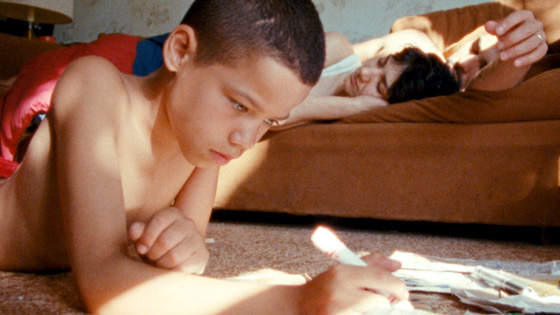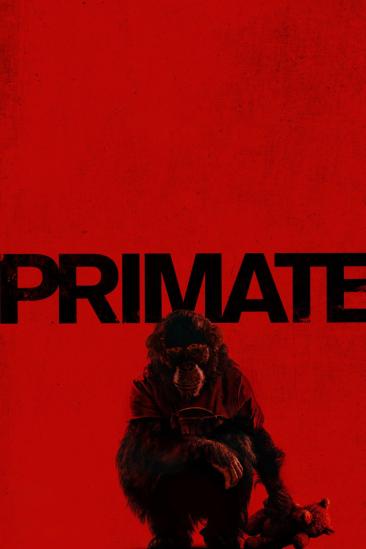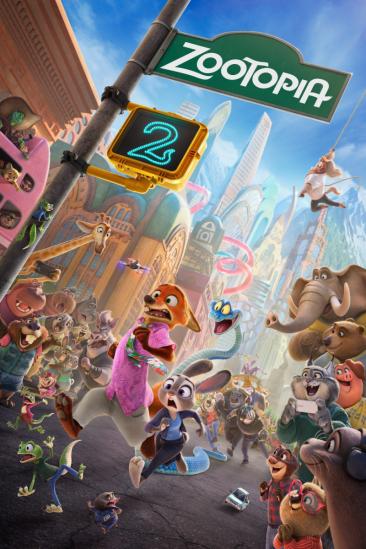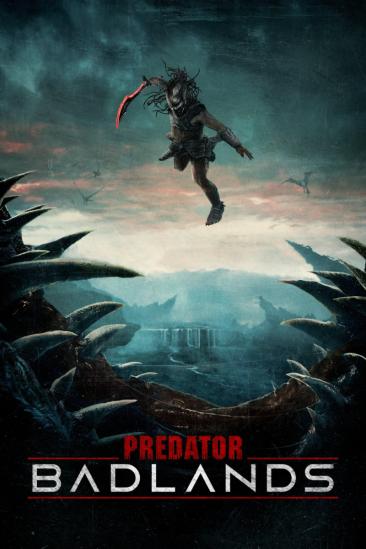WE THE ANIMALS Review
By Douglas Davidson | Leave a Comment | Published 7 years ago

In a cinematic landscape filled with large, loud options, sometimes it’s the quietest ones that make the boldest impact. Such is the case with director Jeremiah Zagar’s We the Animals (2018), an adaptation of Justin Torres’s 2011 award-winning novel of the same name written in conjunction with Daniel Kitrosser, which tracks the youngest of three boys, Jonah (Evan Rosado), as he struggles with a volatile home life, the bonds of brotherhood, and an acute sense of separation that comes from growing up. Utilizing techniques from his documentarian background and three leads with no previous acting experience, Zagar is able to present a challenging, yet surprisingly peaceful meditative piece examining not just the three brothers and their complex existence, but also the connective tissues that makes us who we are.

Manny (Isaiah Kristian), Joel (Josiah Gabriel), and Jonah (Evan Rosado) are each other’s everything. They sleep together, bathe together, go to school together, play and fight together. They are a constant support system amidst the turbulence of two parents whose deep love is accompanied by an equally deep rage. Manny and Joel increasingly emulate their father (Unsane's Raúl Castillo), whereas Jonah demonstrates a conscious sweetness like their mother (A Girl Walks Home Alone At Night’s Sheila Vand). With the push-pull of familial bonds steadily growing, Jonah finds himself on an exploration of self-discovery that shatters his world forever.

Zagar’s documentary background adds a wonderful chaotic element to the presentation within We the Animals (2018). As the bulk of the perspective comes from the sibling POV, particularly that of Jonah, the lack of visual steadiness embodies the energy and crazed focus of the children. Audiences who saw Sean Baker’s beautifully bittersweet The Florida Project will recognize this style, though Baker’s approach is less jerky than Zagar’s, as it consistently places the camera from the vantage point of the children, even when the adults are present. This places more focus on what the kids are doing, how they engage the world around them, and, most importantly, clearly presents how perceptive they are. Even when their view is partially or fully obstructed or when all they can do is listen, the siblings are tortuously aware. As in one moment when the three boys, cleaning off their feet in the bath tub, hide behind the curtain from their recently showered parents. Both parents playfully feign ignorance of their whereabouts – as parents do with their children – yet instead of going to look for them, they begin a sweet, yet passionate make-out session. The camera flits between the boys peering from behind the curtain to the once-more distracted parents, never leaving the grounded angle of the viewpoint of the frustrated children.

As a means of carving out a space for himself, Jonah keeps a hidden journal. Within its pages are countless entries, many covered with drawings depicting moments of joy, pain, revelation, and confusion. In several instances, Zagar animates the images, not for comedic affect or drama, but as a means of depicting Jonah’s internal view of the moments as he saw them or how he’d like to see himself. In one instance, this means Jonah lying in a mud-filled hole, imagining himself sinking in before being lifted out by his own will so that he may fly across his rural town, only his shadow being seen as it floats over trees and houses. These moments perfectly depict the beautiful, yet painful process of becoming self-aware and discovering your identity. Particularly given the tight-knit nature of his relationship with his siblings, taking on adventures – even only in his imagination – is a grand leap into autonomy for Jonah.

Amid the camerawork and imaginative depiction of Jonah’s inner-workings are some truly spectacularly heartbreaking performances. Unlike the previously mentioned The Florida Project which saw two members of the cast justifiably nominated for several awards, Animals should receive recognition for its entire cast. Only Castillo and Vand possess prior screenwork and their experience shows within Animals. They offer heartbreaking performances as two flawed people trying desperately to get more for themselves and their children; even if it means turning their backs on the kids they revolve around. As fantastic as these performances are, however, it’s the children who are truly exceptional. We the Animals (2018) requires the boys not to act, but be – be wild, be silly, be angry, be present – and what Zagar captures is evocatively beautiful. All three never appeared in film before Animals and only Gabriel is already set to appear in upcoming films Monsters and Men and Night Comes On. As a package, these three boys present a powerful depiction of sibling connection and the incredible highs and lows that come along with it. At its core, though, Animals is the story of Jonah and Rosado’s performance is utterly gripping.

We the Animals (2018) stands out as one of the year’s more intriguing films. Audiences expecting a straight-forward narrative may find the guerrilla-style direction and untrained performances hard to absorb, but, once adjusted, will come to see Animals as a stunning find. While fans of the novel will be able to spot the differences between it and the cinematic version from Zagar’s and Kitrosser’s screenplay, it’s absolutely clear that Zagar delivers a film whose conclusion is as glorious as it is regretful, all while being honest to the story of Jonah and his family.
What films surprised you this year? Where they tent poles or something smaller? Is there a family-focused film that crept up on you or you knew immediately was an “instant classic” in your household? Sound off in the comments below.
Final Score: 8 out of 10.
We The Animals • Run time 1:34 • Rated R - for strong sexual content, nudity, language and some underage drug and alcohol use









Post a New Comment
Sign In to CommentComments